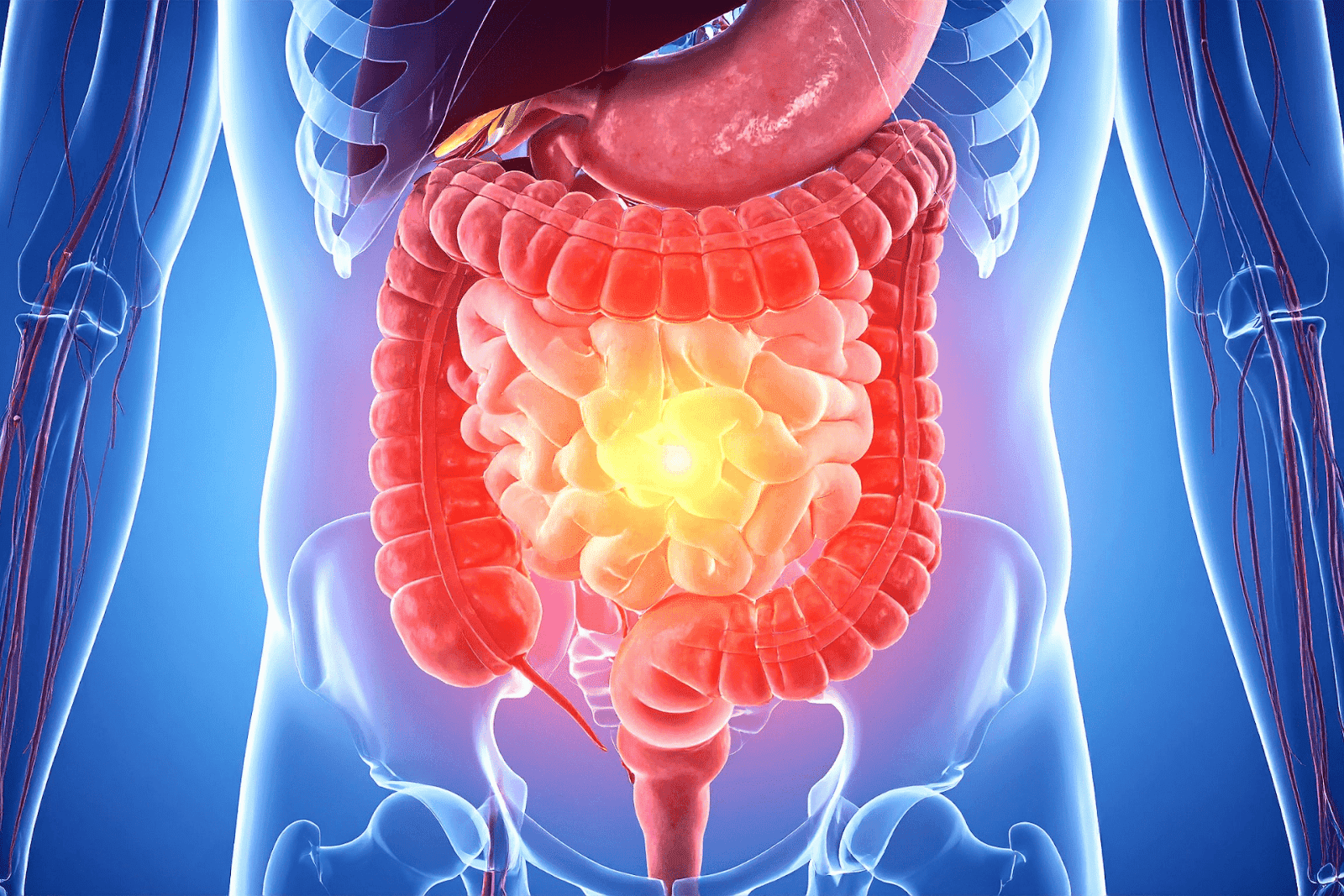Persistent bowel problems can be distressing and disruptive to daily life. Whether you’re experiencing ongoing constipation, diarrhea, abdominal pain, or irregular bowel movements, understanding the possible causes and when to seek help is crucial. Chronic bowel issues might signal underlying health conditions that require timely diagnosis and management. This comprehensive guide explores common reasons behind stubborn bowel problems, what symptoms to monitor, and how modern telehealth services like Doctronic.ai can support your journey to better digestive health.
 Common Causes of Persistent Bowel Problems
Common Causes of Persistent Bowel Problems
Bowel problems that don’t resolve on their own often stem from a variety of causes, ranging from dietary habits to serious medical conditions. Identifying the root cause is the first step toward effective treatment.
1. Irritable Bowel Syndrome (IBS)
IBS is one of the most prevalent chronic gastrointestinal disorders, affecting an estimated 10-15% of adults globally. It is characterized by abdominal pain, bloating, and altered bowel habits such as diarrhea, constipation, or a combination of both. The exact cause of IBS remains unclear, but it is believed to involve gut-brain interactions, intestinal motility issues, and heightened sensitivity to pain.
IBS symptoms can persist for months or years, often triggered by stress, certain foods, or hormonal changes. While IBS is not life-threatening, it can significantly reduce quality of life. Managing IBS typically involves dietary adjustments, stress management, and sometimes medications prescribed by a healthcare provider. Many individuals find relief through a low-FODMAP diet, which reduces certain fermentable carbohydrates that can exacerbate symptoms. Additionally, psychological therapies such as cognitive-behavioral therapy (CBT) have shown promise in helping patients cope with the emotional aspects of living with IBS.
2. Inflammatory Bowel Disease (IBD)
IBD, which includes Crohn’s disease and ulcerative colitis, is a group of chronic inflammatory conditions of the gastrointestinal tract. Unlike IBS, IBD causes actual inflammation and damage to the bowel lining. Symptoms include persistent diarrhea, abdominal pain, rectal bleeding, weight loss, and fatigue.
IBD requires prompt medical attention as it can lead to serious complications if untreated. Diagnosis typically involves blood tests, stool studies, endoscopy, and imaging. Treatment often includes anti-inflammatory medications, immunosuppressants, and sometimes surgery. Patients with IBD may also benefit from nutritional support, as malabsorption and dietary restrictions can lead to deficiencies. Specialized diets, such as the Specific Carbohydrate Diet (SCD), are sometimes recommended to help manage symptoms and promote healing in the gut.
3. Food Intolerances and Allergies
Food intolerances, such as lactose intolerance or gluten sensitivity, can cause chronic bowel symptoms including diarrhea, bloating, and cramps. Unlike food allergies, intolerances do not involve the immune system but result from the body’s inability to properly digest certain foods.
Identifying and eliminating trigger foods from the diet often resolves symptoms. However, persistent symptoms despite dietary changes warrant further evaluation by a healthcare professional. Keeping a food diary can be an effective tool for tracking symptoms and identifying patterns related to specific foods. In some cases, food intolerances can coexist with other gastrointestinal disorders, complicating the diagnosis and management process. Therefore, a comprehensive approach that includes dietary modifications and possibly allergy testing may be necessary for effective treatment.
4. Infections and Parasites
Sometimes, chronic bowel issues are due to lingering infections or parasitic infestations. Bacterial infections like Clostridium difficile or parasitic infections such as giardiasis can cause prolonged diarrhea and abdominal discomfort. These conditions may require specific antibiotic or antiparasitic treatments.
Infections can often be contracted through contaminated food or water, making proper hygiene and food safety practices essential in preventing these conditions. Additionally, some individuals may experience post-infectious irritable bowel syndrome (PI-IBS), where symptoms persist even after the infection has cleared. This phenomenon underscores the importance of thorough medical evaluation and follow-up care to address any lingering gastrointestinal issues. For those who travel frequently or have compromised immune systems, understanding the risks associated with certain regions and taking preventive measures can be crucial in maintaining digestive health.
When to Seek Medical Advice for Bowel Issues
While occasional bowel irregularities are common and often harmless, persistent or severe symptoms should prompt medical evaluation. Early diagnosis can prevent complications and improve outcomes.
Red Flags to Watch For
Unexplained weight loss: Losing weight without trying may indicate a serious underlying condition.
Blood in stool: Visible blood or black, tarry stools require urgent assessment.
Severe abdominal pain: Intense or worsening pain should not be ignored.
Persistent diarrhea or constipation: Symptoms lasting more than a few weeks need evaluation.
Fever or night sweats: May indicate infection or inflammation.
If you experience any of these symptoms, consulting a healthcare provider promptly is essential.
How Telehealth Can Help
Accessing timely medical advice can be challenging, especially if symptoms are embarrassing or if local healthcare facilities are difficult to reach. Doctronic.ai offers a convenient and confidential way to get expert medical guidance from the comfort of home.
Doctronic.ai combines advanced AI technology with licensed physicians to provide fast, accurate assessments and treatment recommendations. Whether you want a second opinion on your symptoms or need a telehealth video visit, Doctronic offers affordable and accessible care 24/7 across all 50 states. Over 10 million people have trusted Doctronic for their health questions, making it a leading choice for modern, patient-centered primary care.
Additionally, the platform is designed to cater to a wide range of health concerns beyond bowel issues, including mental health support and chronic disease management. This holistic approach allows users to address multiple health concerns during a single consultation, streamlining the process of seeking help. Furthermore, the convenience of telehealth means that you can schedule appointments at times that fit your busy lifestyle, reducing the stress often associated with traditional in-person visits.
Moreover, the anonymity provided by telehealth can encourage individuals to discuss sensitive issues they might otherwise avoid. This is particularly beneficial for bowel-related symptoms, which can be stigmatized. By removing barriers to communication, Doctronic.ai empowers patients to take charge of their health and seek the care they need without fear of judgment.
Diagnostic Tests and Evaluations for Chronic Bowel Problems
To pinpoint the cause of persistent bowel symptoms, healthcare providers may recommend several diagnostic tests. These help differentiate between functional disorders like IBS and organic diseases such as IBD or infections. Early and accurate diagnosis is crucial, as it allows for tailored treatment plans that can significantly improve a patient's quality of life and prevent complications.
Stool Studies
Analyzing stool samples can detect infections, blood, inflammation markers, and malabsorption issues. Tests may include cultures, ova and parasite exams, and fecal calprotectin to assess intestinal inflammation. Additionally, stool studies can help identify specific pathogens responsible for gastrointestinal distress, such as bacteria, viruses, or parasites, which can lead to targeted antibiotic or antiparasitic treatments. The consistency and frequency of bowel movements are also evaluated, providing further insights into the underlying issues affecting gut health.
Blood Tests
Blood work can check for anemia, infection, inflammation, and nutritional deficiencies. Markers such as C-reactive protein (CRP) and erythrocyte sedimentation rate (ESR) help evaluate inflammatory activity. Beyond these markers, specific antibody tests can be conducted to assess for autoimmune conditions, such as celiac disease, which may contribute to chronic bowel symptoms. Monitoring vitamin and mineral levels, such as vitamin B12 and iron, is also essential, as deficiencies can exacerbate gastrointestinal issues and lead to systemic health problems.
Endoscopy and Colonoscopy
Visual examination of the digestive tract using an endoscope or colonoscope allows direct inspection and biopsy of suspicious areas. These procedures are critical for diagnosing IBD, colorectal cancer, and other structural abnormalities. In some cases, advanced techniques like chromoendoscopy or narrow-band imaging may be employed to enhance the visualization of mucosal lesions, improving diagnostic accuracy. The ability to perform therapeutic interventions, such as polypectomy or dilation of strictures during these procedures, further underscores their importance in managing chronic bowel conditions.
 Imaging Studies
Imaging Studies
Ultrasound, CT scans, and MRI can provide detailed images of the bowel and surrounding organs, helping to identify obstructions, inflammation, or tumors. These imaging modalities are particularly useful in assessing complications of inflammatory bowel disease, such as abscesses or fistulas, which may not be visible through other diagnostic methods. Additionally, the use of contrast agents in imaging studies can enhance the visibility of the gastrointestinal tract, allowing for a more comprehensive evaluation of the patient's condition and aiding in the development of an effective treatment strategy.
Managing Persistent Bowel Problems: Tips and Treatment Options
Effective management depends on the underlying cause but often involves lifestyle modifications, medications, and ongoing monitoring.
Diet and Nutrition
Diet plays a pivotal role in bowel health. For IBS, a low FODMAP diet, which reduces fermentable carbohydrates, has shown significant symptom relief. Avoiding trigger foods, increasing fiber intake, and staying hydrated are general recommendations.
For food intolerances, eliminating offending foods is essential. Working with a dietitian can help ensure nutritional adequacy while managing symptoms.
Medications
Depending on diagnosis, treatment may include antispasmodics, laxatives, antidiarrheals, antibiotics, or anti-inflammatory drugs. In IBD, biologic therapies have revolutionized care by targeting specific immune pathways.
Stress Management and Mental Health
Stress can exacerbate bowel symptoms, particularly in IBS. Techniques such as mindfulness, cognitive behavioral therapy (CBT), and regular exercise can improve both mental well-being and gastrointestinal symptoms.
Regular Follow-Up and Monitoring
Chronic bowel conditions require ongoing care to monitor symptom progression and treatment response. Doctronic.ai makes it easier to maintain regular contact with healthcare providers without frequent in-person visits.
Why Choose Doctronic.ai for Your Bowel Health Concerns?
In today’s fast-paced world, having quick and reliable access to quality healthcare is invaluable. Doctronic.ai stands out by combining cutting-edge AI with compassionate human doctors to deliver personalized primary care.
With Doctronic, you can:
Get free AI-powered doctor visits anytime to understand your symptoms and get initial guidance.
Access affordable telehealth video visits with licensed physicians 24/7, no matter where you live in the U.S.
Benefit from a system that remembers your medical history and preferences, offering truly personalized care.
Receive treatment recommendations based on the latest peer-reviewed medical research, not random internet sources.
For anyone struggling with bowel problems that won’t go away, Doctronic.ai offers a smart, fast, and personal way to get the answers and care you need.
Final Thoughts
Persistent bowel problems should never be ignored. While some causes are benign, others require timely intervention to prevent complications. Understanding the potential causes, recognizing warning signs, and seeking appropriate medical evaluation are key steps.
Thanks to advances in telehealth, expert medical advice is more accessible than ever. Doctronic.ai empowers patients with fast, evidence-based care that fits into busy lives. If your bowel symptoms have been lingering, don’t wait—check your symptoms, get a professional evaluation, and take control of your health today.
Take the Next Step with Doctronic
If you're dealing with persistent bowel problems and need answers now, Doctronic is here to help. As the #1 AI Doctor, we offer free AI doctor visits that provide you with a diagnosis in seconds, based on the latest peer-reviewed medical research. Our AI gets to know you personally, remembering every visit and detail, ensuring the most personalized care. For added convenience, you can also schedule a telehealth video visit with our doctors anytime, anywhere. Over 10 million people have already experienced the Doctronic difference. Don't let bowel issues hold you back any longer. Skip the line. Talk to an AI Doctor Now, for free.



 Common Causes of Persistent Bowel Problems
Common Causes of Persistent Bowel Problems Imaging Studies
Imaging Studies